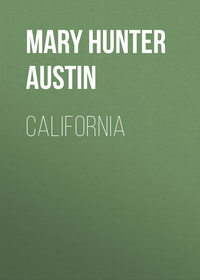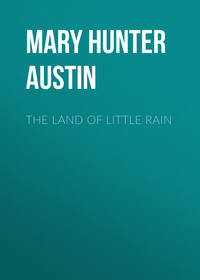 полная версия
полная версияA Woman of Genius
One night when the wind out of the lake was fresh enough to suggest, in the closed window and the drawn blind, a reciprocated intimacy, I told Sarah all about Helmeth Garrett.
"And to think," I said, "how different it all might have been if only I had got that letter."
"Yes," Sarah admitted, "but that doesn't prove you'd have been happy."
"Not if we loved one another?"
"Oh, I am not sure loving has anything to do with happiness, or is meant to. Sometimes I think God – or whoever it is manages things – has a very poor opinion of happiness, because you don't find it invariably along with the best of experiences. It happens, or it doesn't. If love does anything for you it is just to give you the use of yourself."
"But it hasn't," I protested; "I'm just stumping along."
"You haven't really had it – just being kissed once, what does that amount to?"
"Oh, Sarah, Sarah, that is what hurts me! I haven't really had it. I'm never going to. I'll just go halting like this all my life."
"No, you won't," Sarah shook her head, piecing her own knowledge slowly into comfort for me. "You remember what I told you that time when you found out about Dean and Mr. O'Farrell? There's a kind of feeling that goes with acting that is like loving, only it isn't. I don't know where it comes from. Maybe it is what they call genius, but I know you can slide off from loving into it. That is what makes Jerry think he has to be in love all the time; it is a little stair he climbs up, and then he goes sailing off. You don't think Fancy Filette really does anything for him?"
"Goodness, no; she hasn't a teaspoonful of brains!"
"Well, then," she triumphed. "After a while his genius will be so strong in him that he won't need that sort of thing and he will think it ridiculous."
"And you think that will come to me?"
"It did come. You didn't have to be in love to begin," Sarah objected.
"Sarah, I will tell you the truth! I was in love all the time, I didn't know with whom, but always wanting somebody … trying to get through to something; trying to mate. That was it. Nights when I would do my best, and the house would be storming and cheering, I would look around for … for somebody. And I would go to my room, and he wouldn't be there! I used to think Tommy would be He, I wanted him to be. I thought some day I would turn around suddenly and find him changed into … whatever it was I wanted. But I know now he never could have been that. And all this summer … I've heard it calling. I've walked and walked. Sometimes it was just around the corner, but I never caught up with it. And when I saw Helmeth Garrett, I knew!"
I had leaned back out of the circle of our small shaded lamp to make my confession, but Sarah came forward into it the better to show me the condoning tenderness of her smile.
"It's no use, Sarah, I'm no genius; I have to be in love like the rest of them." She shook her head gently.
"You'll get across. Love would help; I wish you had it. But I'll confess to you; I had love and it only opened the door. There's something beyond, bigger than all men. You must reach out and lay hold of it. Oh, if it were love one needed, I should die – I should die!" I had never seen her so moved before.
"Tell me, Sarah; I've always wanted to know."
"I want you to know, but it isn't easy! I didn't know anything about love … how could I the way I was brought up! My father was a Baptist preacher. I had been taught that it was wrong to let anybody … touch you; and when he kissed me I felt as if he had the right…"
"I know, I know!" I had been kissed that way myself.
"How can anybody know? I loved him, and I was the only one of many. He left me without a word, … like a woman of the street … not looking backward." She got up and moved about the room, the thick coil of her rich brown hair slipping to her shoulders, and her bodily perfection under the thin dressing gown distracting me even from the passion of her speech. I had a momentary pang of sympathy with the delinquent Lawrence, I could see how a man might be afraid almost, of the quality of her beauty.
"Sometimes," she said, "I think marriage is a much more real relation than people think – that something real but invisible happens between them so that even if they are parted they are never quite the same again. It is like having a limb torn from you; you ache always, in the part you have lost." I knew something of what that ache could be, but I could only turn my face up to hers that she might see my tears.
"You have enough of your own to bear," she said. "I must not lay my troubles on you; but I wanted to tell you how I know it is not love that makes art. I was dying for love when Mr. O'Farrell put me to acting. I was bleeding so … and suddenly I reached out and laid hold of Whatever is, and I found I could act. It was as if the half of me that had been torn away had been between me and It, and I laid hold of It. That's how I know." She came behind me, leaning on my chair, and I put up my hands to her.
"Oh, Sarah, Sarah, help me to lay hold of it, too!" But for all her shy confidences, deep within I didn't believe her.
Toward the first of September we went back to the city, Sarah to begin rehearsals for The Futurist, and I to take up the dreary round of manager's offices and dramatic agencies. The best that was offered me was poor enough, but it had a faint savour of a superior motive clinging to it. It was from a Mr. Coleman, an actor manager of the old, heavy-jowled Shakespearian type, who was projecting a classic revival with himself in all the tragic parts, and I signed with him to play Portia, Cleopatra, and the wife of Brutus. We had been busy with rehearsals about ten days when I had a telegram from Forester saying that mother had died that day and I was to come immediately.
It was late Sunday evening when I received it and I hunted up the manager at the hotel.
"I'm going," I told him.
"Well, of course, your contract – "
"I'm going anyway … and I know the lines." He was as considerate, I suppose, as could be expected.
"I can give you three days," he calculated.
"Four," I stipulated.
"Well, four," he grudged. That would allow two days for the funeral.
CHAPTER III
As it turned out I was more than a month in Taylorville and so saved myself from the Coleman players for a more kindly destiny, though at the time it did not appear so. It grew out of my realizing, in Effie's first clasp of me, something more than our common loss, more than family, something that I felt myself answer to before we could have any talk together that did not relate to the funeral and the manner of my mother's death.
They thought from little things that came to mind afterward, that she must have been prepared for it, but forebore to trouble them with a presentiment of what could not in any case have been much longer delayed: she had clung to them more and been still more loath to trouble them with her wants. The Saturday before, she had made Effie understand that she wished all the photographs of my father brought together, queer, little old daguerrotypes of him as a young man, a tintype of him in his volunteer soldier dress, and a large, faded photo of him as an officer leaning on his sword. She kept them by her and would be seen poring upon them, as though she tried to fix the identity of one about to be met under unfamiliar or confusing circumstances, though they did not think of this until afterward. The Sunday of her death Cousin Judd had come in to sit with her, as his custom was, an hour earlier than the morning service. He had read the day's lesson from the Bible and sung the hymn, and then after an interval Effie, who was busy about the back of the house, heard him sing again my mother's favourite hymn, and as he sung she saw the tears rolling down his face. So she turned her back on them and let them say their good-byes without her, though she had no notion how near the final parting was.
"Come, Thou fount of every blessing,
Tune my heart to sing Thy praise."
Forester was dressing – he and Effie had taken turns at church-going ever since mother's stroke – and he was surprised to find that Cousin Judd had gone off without him. Mother clung to him when he went to kiss her good-bye; she struggled with her impotence, but they made out that it was not because she wanted him to stay at home with her; and for the first time since her illness she wished not to be propped up at the window where she could sign to the neighbours going by, but seemed to want greatly to sleep. Effie wheeled her into the corner of the sitting room; and a little later she noticed that mother's head had slipped down on the pillow as it did sometimes, past her power to lift it up again. So my sister straightened the poor head with a kiss and went back to getting the dinner. She moved softly because mother seemed asleep, but at last when she went as usual to tell her that Forester was visible at the end of the street, on the way home, she saw that the head had slipped down again, and this time as she lifted it up there was no life in it at all.
One of the strange incidents of that morning, and yet not strange when you think how much they had been to one another, was that Cousin Judd, though he had started home directly after church, could not get there, but when he had driven a little way out of town, drawn by he knew not what unseen force, turned back and pulled up in front of our door just as the doctor who had been summoned hastily was saying that mother had been dead an hour.
It was Monday morning when I arrived, and the funeral could not be until Tuesday, to allow time for the news to penetrate to all the distant country places from which my mother's relatives would be drawn to it, moved and anxious to come, though many of them had not seen her for a matter of years. I think I realized at once how it would be about my getting back to Chicago, especially when I spoke to Effie about it. She cried out and clung to me in a way that made me see that I stood for something more to her than just sisterliness. Without saying anything I wrote to Mr. Coleman that I should be detained a week or longer, and that though I hoped he would be able to save my place for me, I didn't really expect that he would.
It was not in the Taylorville cemetery that we buried my mother, but in a little plot set aside from the old Judd place, along with the rest of the Wilsons, Judds, and Jewetts, those that had dropped back peacefully to their native sod, and those sent home from Gettysburg and Appomattox. It was a longish ride; from turn to turn of the country road, teams dropped into the procession that led out from town. On either side the woods blazed like the ranked Cherubim, host on host; great shoals of fiery leaves lay in the shallows of the burying ground. At the last, shaken by the light breeze that sprung up, little flamy darts from the oak whirled into the grave with her. They were to say in their own fashion that there was nothing more natural. I think my mother must have found it so.
We had scarcely got home again, still sitting about, veiled and voluminous, when I was drawn out of grief to meet Effie's emergency. It was Almira Jewett who brought me face to face with it. Almira had taken off her things and was getting tea for us in her brisk, capable way.
"Anyhow," she said, "I 'spose you'll stay with your sister until she gets sort of used to things." It flashed on me that what she was expected to get used to, was going on just as she had been without the excuse of my mother's needing her.
"Oh, I'll stay till the breaking up," I met her promptly.
"My land!" said Almira Jewett, "you talking of the breakin' up and your mother ain't hardly out of the house yet. They do say there's nothing like play-acting to make you nimble in your feelings." I knew of course that they would lay it to the defibricating influence of my profession that I should take the breaking up of my mother's home so lightly, but I had caught a brief hiatus in Effie's sobs and I realized that what the poor child was afraid of, was being hypnotized into a situation against which her natural good sense revolted. I was bracing myself against the tradition of filial obligation that I felt was going to be put in force against me, when suddenly help arrived from an unsuspected quarter.
"I 'spose you're going with a troupe yet?" Cousin Lydia interposed, for the first time in her life, I believe, delivering herself of a conclusion. "It's a pity, because if you was anyways settled you could take Effie with you. Forester was a good son;" she ruminated on that for a while. "He was what you call a real model son, but I don't know as I want to see Effie married to him the same as your mother was." It gave me a shock to think that all these years she must have been seeing how things were.
"She shan't," I assured her, "not if I have to stay with Forrie myself." I had thought a good many times what was to become of Effie. I couldn't take her with me, of course, but I wasn't in the least prepared to see her intrigued by the popular sentiment into becoming a mere figurehead for Forester's rôle of provider. "Keeping up a home" they called it in Taylorville, as though the house and furniture and the daily habit of coming back to it, were the pivotal facts of existence.
It almost seemed as if it might come to that. After the others were all gone and the night closed in on us three, the spirit of the dead came and stood among us. Effie wept in Forrie's arms and said that he should not be quite bereft, he should have her anyway.
"You poor child … you've got a brother left; you too, Olivia. You shan't want for a home while I live." That of course was the sort of thing Taylorville expected of him. It began to seem as if I might have to make good my word about staying with my brother to let Effie free. I believe he would have accepted that without even a suspicion of what I surrendered by it. If anything, he would have seen in it only another dramatization of his rôle of dutifulness. That a woman had any preferred employment beside cushioning life for the males of her family, had not impinged on the consciousness of Taylorville.
But the very next morning I awoke anew to the purpose of rescuing Effie, and to the recollection of an incident of the funeral, noted but not taken into the reckoning in the stress of more absorbing emotions.
"Effie, wasn't that Mrs. Jastrow I saw at the cemetery yesterday with her head done up in a black veil – crape, too? I have just recalled it." Effie nodded.
"One would have thought," I resented, "that she was one of the family."
"Ah, that's it; she thinks she is."
"One of the family? Oh! you don't mean that Forrie – Where was Lily then?" I demanded.
"She wouldn't come, of course, not being recognized as one of the family and yet counting herself one."
"But, explain … how could she? I thought that was broken off long ago."
"When mother was first taken," Effie agreed, "but you see she made such a dead set at him, she had to keep it up somehow; she couldn't admit that Forrie hadn't wanted her. So they made it up between them, Lily and her mother, I mean, that she and Forrie had really been engaged, but it had been broken off because Forrie couldn't marry so long as mother – " She broke off with tears again, remembering how mother was now.
"That was two years ago; you don't mean to say they've kept it up all the time?"
"They've had to. You see Lily hadn't been careful about not getting herself talked about with Forester. Oh, not scandal, of course, but you know how it is when a girl is crazy after a man; everybody gets to hear of it. And then they had to make so much of the engagement never coming to anything on mother's account, it quite spoiled Lily's chances, and you know, Forester…"
"Oh, he was taken in by it, no doubt; it was something to sentimentalize over and be self-sacrificing about."
"Well, of course, he couldn't quite abandon the poor girl; and she really is fond of him."
"And perfectly safe to philander with. Well, now that he has no one depending on him I suppose he will marry her!"
"That's what is worrying me," protested Effie; "you see it all depends on whether I go on depending on him." She broke down over that. Mother hadn't wanted Forester to marry Lily Jastrow, and everybody by the mouth of Almira Jewett, had thought it was Effie's duty to keep him from it if she could.
"And I could, by just staying on. It's mother's money in the business, your's and mine as much as his, and this house … it's partly ours … if we stay in it."
"Well if you want to…"
Effie came over and sobbed on my shoulder, "Oh, I don't," she said. "I suppose it is horrid and selfish. I'm fond of Forrie, but I want to do things in the world … like you have … and I want to marry and have babies. Oh, oh!" She was quite overwhelmed with the turpitude of it.
"You shall, you shall," I determined for her.
"Oh, Olivia, I have wanted you so. I knew you'd understand. It was all right so long as mother lived; I could do anything for her, but now I want – I want to be me!" I understood very well what that want was. But first off I had to explain to Effie why I couldn't take her with me. It was wonderful how she entered into my feeling about my work, and my lack of success in Chicago.
"Of course, you ought to go to New York. You'll be a great tragic actress, Olive, I know that. You could go, too, if you could get your share out of the business. You could have mine and yours!" She glowed over it. But the fact was we couldn't get the money out of the business. As it stood we couldn't have sold the shop for what mother had put into it, and, besides, we should have had to deal first with Forester's conviction that he was taking care of our shares for us. I needn't have worried about Effie; she was too pretty and competent not to have arranged for herself. The principal and his wife drove over from Montecito to say that they would be glad to have her come back and finish the course interrupted within a few months of graduation by my mother's illness. And for her board and tuition she was to act as the principal's secretary. Within a year she wrote that she was engaged to their son.
In the meantime I undertook to stop the capacious maw of Forrie's need of being important; and the only way I saw to do it, involved my surrender of any hope I had of finding my own release in what my mother had left us of my father's hard won savings. I shouldn't have had any compunction, so fierce was my own need of success, about forcing my brother's hand, but I meant definitely not to leave any gap in his life for Effie to be drawn back into. Before we had come to this point, the second afternoon after the funeral in fact, circumstances had begun to work for me. Effie and I, looking out of the window, saw Mrs. Jastrow coming along by the front fence with all her gentility spread, as it were, by the feeling she had of her call on us being a diplomatic function.
"She's coming to see how we take it," Effie averred.
"Her coming to the funeral as one of the family? Well, how do we take it, Effie?"
"Mother couldn't bear the idea of it." Tears came into my sister's eyes; I could see the wings of self-immolation hovering over her.
"Look here, Effie, you go and take home Mrs. Endsleigh's spoons." There had been so many out of town connections dropping in for a meal that we had been obliged to fall back on our nearest neighbour.
"Lily's respectable, isn't she? and Forester has encouraged her. Well, you don't want to spoil the poor girl's life, do you?"
"Oh," said Effie, "oh, Olivia!" I could see she was torn between compunction and admiration for my way of putting it on high moral grounds. I heard her counting out the spoons in the kitchen as I went to let Mrs. Jastrow in.
I think she didn't know any more than Effie did, what to make of my manner of receiving her. She sat on the edge of a chair and snivelled a little into a handkerchief which was evidently her husband's, but it was chiefly, I could see, because she had come prepared to snivel and couldn't quickly adjust herself to my change of base.
"Poor Lily," she moaned, "she thought such a lot of Mr. Lattimore's mother; but I tell her she must bear up."
"She must indeed," I assured her. "Forester needs all the sympathy he can get just now." I could see her peeping over the top of her handkerchief, trying to guess what to make of that; but the sentimental was easy for her.
"That's what I tell her; they'll have to comfort each other. Them poor young things, they'd ought to be together. But Lily's so sensitive she couldn't bear to put herself forward."
"I'll tell Forrie you called," I assured her.
Mrs. Jastrow fanned herself with her damp handkerchief; her poor little pretence broke quite down under my friendliness.
"He's got to marry her," she whispered. "Lily's been talked about, and he's got to." I could guess suddenly what it meant to her to have reached up so desperately for something better for her daughter than she had been able to manage for herself, and to come so near not getting it. I was able to put something like sympathy into my voice when I spoke to Forester at supper.
"Mrs. Jastrow called to-day. She says Lily isn't bearing up as she might. I suppose you ought to go and see her!"
Effie's eyes grew round at me over the teacups, but after all Forrie didn't know what had passed between mother and me in regard to Lily. If I chose to take his relation to her as a matter of course, he couldn't object to it. We heard Forrie in his room changing his collar before he went back to the shop again.
"He'll go to her to-night after he closes up," Effie told me. "It will end with her getting him."
"So long as he doesn't get you – " But it was unfair to put ideas like that in Effie's head. "After all it is a very good match for him in some ways; she'll always look up to him, and that is what Forrie needs."
It was natural to Effie to judge every situation by what it had for those concerned; she wasn't troubled as I was by the pressure of an outside ideal. By the end of a month, when I thought of going back to the city, it was tacitly understood that as soon as convenient Forester was to marry Lily Jastrow. He meant, however, to be fair with us both about the property; he had given us notes for our share, and expected to pay interest. The note wasn't negotiable, as I learned immediately, and the interest wasn't any more than Effie would need for her clothing. I felt that the jaws of destiny which had opened to let Effie out, had closed on me instead. I returned to Chicago early in November; my place with the Coleman players had long been filled, and there was nothing whatever to do.
CHAPTER IV
Jerry's play, which had had its premier while I was away, was going on successfully. One of the first items of news Sarah told me about him was that his wife was expecting another child, undertaken in the hope that, if she couldn't hold her husband's roving fancy, she could at least fix his attention on her situation. All that she had got out of it so far, was a reason for staying at home, which left Jerry the freer to bestow his society where it was most acceptable.
"Does she know – Miss Filette, I mean – about the child."
"Not unless Jerry has told her – which he'd hardly do." Sarah laughed a little, and that was not usual with her; she had very little humour. "Fancy is so up in the air about the success of the play, she thinks she inspired it. I imagine they'd feel it an indelicacy of Mrs. McDermott to have intruded her condition on their relation. Of course it is understood that there's nothing really wrong about it…"
"It is wrong if his wife is made unhappy by it." I hadn't Sarah's reason for being lenient. "Somebody ought to speak to Jerry."
"You might – he would listen to you. It is just because there is so little in it that it is so hard to deal with."
I suppose I took to interfering in the McDermott's affairs because I had so little of my own to interest me. Besides, I was fond of Jerry and didn't see how he was to be helped by getting his family into a muddle.
"But after all," Sarah reminded me, "it is his own wife and his own inspiration." It wasn't in me to tell her, even if I had understood it myself at the time, that the secret of my resentment was that it should be so accepted on all sides that one must choose between them. I wanted, oh, I immensely wanted, what Jerry was getting out of his relation to Miss Filette, but I wanted it free of the implication that my abandonment of my husband to the village dressmaker put me in anything like the same case.







